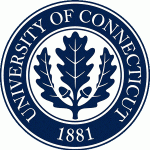Dominic Albino, a fourth-year graduate student in the department, and co-authors Seth Frey and Paul Williams have had their paper, “Synergistic Information Processing Encrypts Strategic Reasoning in Poker,” accepted for publication in the journal Cognitive Science.
To win at poker, players must exploit public signals from opponents, but using those signals usually makes the player’s own strategy vulnerable. The paper uses 1.75 million hands of online poker data to show that winning players successfully encrypt their strategy, using their own cards like the private key in public key cryptography. By doing so, they are able to solve the problem of exploiting others while remaining protected themselves and turn uncertainty, usually considered a liability, into an advantage.
A copy of the paper may be found on Dominic Albino’s ResearchGate page.
 m participants were:
m participants were:
 Tyler DiBrino, Gabriel Hack, Max Karsanow, Ari Nishimura-Gasparian, John Roberts, Alexander Rojas, Joaquin Sanchez, and Timothy Sullivan all participated on behalf of the University of Connecticut – Storrs in the 2017 Fed Challenge held at the Boston Fed on Friday, November 3rd. The students, and their faculty advisors Derek Johnson and Owen Svalestad, are shown at left in Boston.
Tyler DiBrino, Gabriel Hack, Max Karsanow, Ari Nishimura-Gasparian, John Roberts, Alexander Rojas, Joaquin Sanchez, and Timothy Sullivan all participated on behalf of the University of Connecticut – Storrs in the 2017 Fed Challenge held at the Boston Fed on Friday, November 3rd. The students, and their faculty advisors Derek Johnson and Owen Svalestad, are shown at left in Boston.

